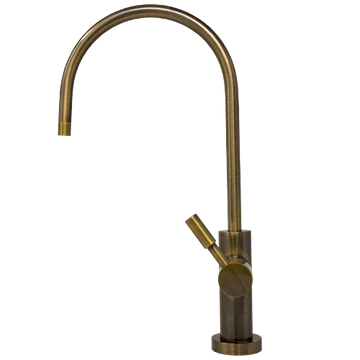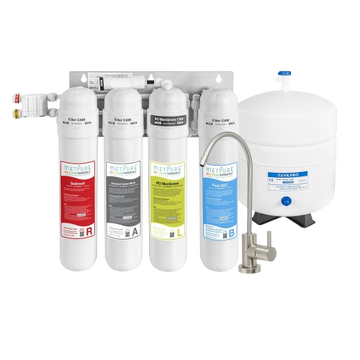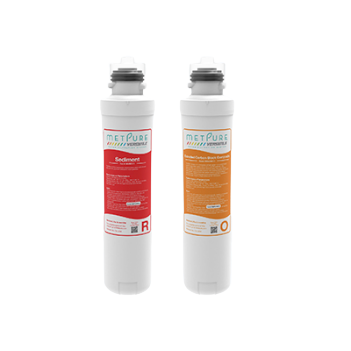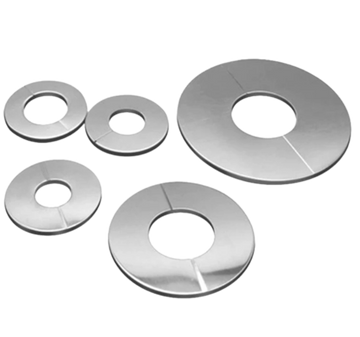The importance of clean and safe water in daily life
Water is an indispensable element in our lives, vital not just for survival but for thriving in our daily routines. Imagine turning on your kitchen tap and being certain that what flows is more than just liquid; it's a guarantee of safety, purity, and health. Yet, the reality often falls short, with concerns about the quality of tap water prevalent in many households. The significance of having access to clean and safe water cannot be overstated. It's the foundation of health, the essence of life, and the core of every sip and meal we take.
Sink faucet water filter and its purpose

A sink faucet water filter stands as a modern solution designed to ensure the water flowing from your kitchen tap meets higher purity standards. It's an attachment fitted to the faucet that utilizes various filtration methods to eliminate impurities and contaminants present in tap water. These filters are engineered to enhance water quality by removing sediments, chlorine, lead, bacteria, and other harmful elements, thereby providing a steady flow of cleaner, safer water directly from your tap.
How sink faucet water filters remove impurities, contaminants, and pollutants
Sink faucet water filters employ a series of filtration mechanisms designed to eliminate impurities, contaminants, and pollutants present in tap water. These filtration systems commonly use activated carbon, sediment filters, and sometimes additional technologies like reverse osmosis or UV sterilization. The activated carbon traps and absorbs various impurities, including chlorine, volatile organic compounds (VOCs), and unpleasant odors, while the sediment filter captures larger particles like rust and sand. Additionally, more advanced filters can remove heavy metals, microbial contaminants, and even tiny particles, ensuring a significant enhancement in water quality directly from your tap.
Benefits of filtered water in terms of taste, odor, and clarity
The benefits of using sink faucet water filters extend beyond mere purification. Filtered water emerges crisp, refreshing, and devoid of the typical odors or tastes often associated with unfiltered tap water. Chlorine, known for its distinct taste and smell, is effectively reduced, leading to an overall improvement in the water's taste profile. Furthermore, filtered water gains exceptional clarity, offering a visually pleasing and inviting quality that enhances the overall drinking experience.

Importance of accessing cleaner and safer water for drinking and cooking
Accessing cleaner and safer water for drinking and cooking is fundamental to our health and well-being. Clean water not only influences the taste of beverages and meals but also ensures the removal of potentially harmful substances that could have adverse effects on health. Whether used for hydration or culinary purposes, the assurance of cleaner water minimizes the intake of impurities and contaminants, contributing significantly to overall health. Moreover, filtered water for cooking enhances the flavors of dishes, allowing natural tastes to shine through without the interference of unwanted elements present in unfiltered tap water.
Health Benefits
Discussion on the potential health risks
Unfiltered tap water can harbor various contaminants and pollutants that pose potential health risks upon consumption. Among the concerning elements found in unfiltered water, lead remains a significant issue in older plumbing systems, potentially seeping into the water supply. Additionally, microbial contaminants, such as bacteria and parasites, might find their way into the water, presenting health hazards if consumed without proper filtration.
A water filter can eliminate harmful substances
A water filter installed on your sink faucet acts as a safeguard against these health risks by effectively removing harmful substances. Filters equipped with activated carbon or specialized media effectively trap and neutralize lead particles, while chlorine, known for its disinfection properties in municipal water, is significantly reduced. Moreover, advanced filtration technologies in some systems can tackle bacteria, parasites, and other microbiological threats, ensuring that the water you consume is cleaner and safer for your health.
Cost-Effectiveness
Expenses related to purchasing bottled water vs. installing a sink faucet water filter
The costs associated with purchasing bottled water, often perceived as a convenient alternative to tap water, can accumulate significantly over time. Bottled water expenses encompass not just the cost of the water itself but also packaging, transportation, and marketing. Comparatively, the initial investment in a sink faucet water filter represents a one-time purchase that provides continuous access to clean, filtered water without the recurring expense of purchasing individual bottles.
Economic benefits of investing in a reusable filtration system for continual use.
Investing in Installing a Water filter presents economic benefits beyond mere savings. These filtration systems are designed for continual use, providing a consistent supply of clean water without the need for additional purchases. Additionally, the convenience of having filtered water readily available at your kitchen sink eliminates the ongoing costs associated with purchasing bottled water or installing bulky filtration systems that require frequent replacement.
Environmental Impact
Consequences of plastic waste from disposable water bottles.
Disposable water bottles contribute significantly to environmental pollution, creating a substantial ecological footprint. The production, transportation, and disposal of plastic bottles lead to the depletion of natural resources and the release of harmful greenhouse gases. Moreover, the improper disposal of these bottles further exacerbates environmental degradation, contributing to the global plastic waste crisis that threatens ecosystems and wildlife.
Emphasis on the reduction of plastic pollution
Choosing Install a water filter a sustainable option like a sink faucet water filter plays a crucial role in reducing plastic pollution. By opting for filtered water directly from the tap, households can significantly diminish their reliance on single-use plastic bottles, thereby curbing the generation of plastic waste. This conscious choice promotes a more environmentally friendly approach, contributing to the reduction of plastic pollution that poses severe threats to marine life, land ecosystems, and overall environmental health.
Advocacy for eco-friendly practices
Using a reusable sink faucet water filter embodies an eco-friendly practice with positive environmental implications. These filtration systems eliminate the need for single-use plastic bottles, promoting a sustainable lifestyle by reducing plastic waste. Additionally, the long-term use of a reusable filter minimizes the environmental impact associated with manufacturing, transporting, and disposing of disposable water bottles, aligning with efforts to promote conservation and environmental stewardship.
Conclusion
The decision to install a water filter faucet embodies a commitment to healthier living, cost-effectiveness, environmental stewardship, and enhanced convenience. Through the course of this exploration, we've unveiled the transformative advantages of choosing a sink faucet water filter: from improved water quality, safeguarding health, and long-term cost savings to a reduced environmental footprint and unparalleled convenience. By opting for cleaner, safer water directly from your tap, you not only ensure a consistent supply of purified water for hydration and culinary needs but also contribute to a more sustainable future by reducing reliance on single-use plastic bottles. As you consider the multifaceted benefits of a sink faucet water filter, remember that this simple yet impactful decision holds the power to revolutionize your daily water consumption, fostering a healthier, more eco-conscious lifestyle for you and the planet.














